QuestionHi, I have a 10 gallon tank for about 3 weeks. Last week I went to my local Petsmart ask for them to check my water. The Ammonia was 0.5 and Nitrate was 0 and small amount of Nitrite. The guy made a mistake and tell me my tank is fully cycled. So my friend got excited and got me a lot fish. So right now, I have 3 Zebra Danios, 6 Nero Tetras, 3 tiger barts, 2 otos, three shrimps and one apple snail in my tank. I also have some live plants in my tank, they are hair grass, money wart and there are two I don't know the name. One of the plant I don't know the name actually grow very quick and the other one has black algae grow on the leaves. I clean the black alga off and it come back within couple days. Today, I did a water test myself, and the ammonia was about 0.25 but the Nitrate was 40 ppm, and Nitrite was 10 ppm or above. Also the filter cartiage is cloged very easy, I have to change it every other week. Is that means I over stocked my tank? and what should I do to get rid of the balck algea, it only appear on that one plant.
AnswerMeiling,
It takes anywhere from 3-6 weeks for a tank to become fully established (cycled). In this time, you want to add fish slowly, maybe 1-3 per week. You never want to add such a large amount of fish at once, especially to a new tank.
Also, you have too many fish in there for a ten gallon as well. I would return all but 2 or 3, and then perform a large water change, and try again - sticking to only a fish or two per week, and stopping when you get to nine or ten 1-2 inch fish.
Even in a fully cycled tank, increasing the amount of fish by such a large number will throw off the biofilter and you will see large amounts of ammonia.
So yes, that is why your filters clogs so fast. And make sure you are performing water changes at least once a week - around 40% of the water.
Algae, while not necessarily bad, can be kept to a minimum by simply vacuuming the gravel once a week, removing extra food after feeding your fish, and being careful to not overfeed your fish. Algae feeds off the same things that create ammonia.
Remember to always research each fish before buying it, to make sure it doesn't grow too large for your tank, and that it will be compatible with your other fish. It's a lot easier to stick to fish that have the same diet, need the same pH and temperature, and have less than aggressive personalities.

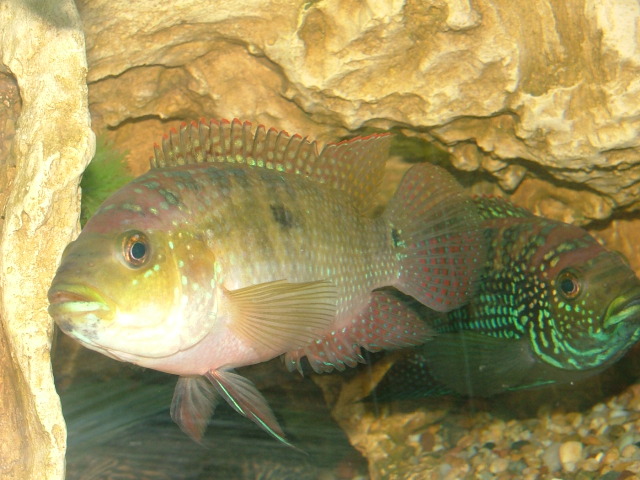 What sex are my Jack Dempseys?
Question
Jack Dempseys
Good morning MR. Coleman.
What sex are my Jack Dempseys?
Question
Jack Dempseys
Good morning MR. Coleman.
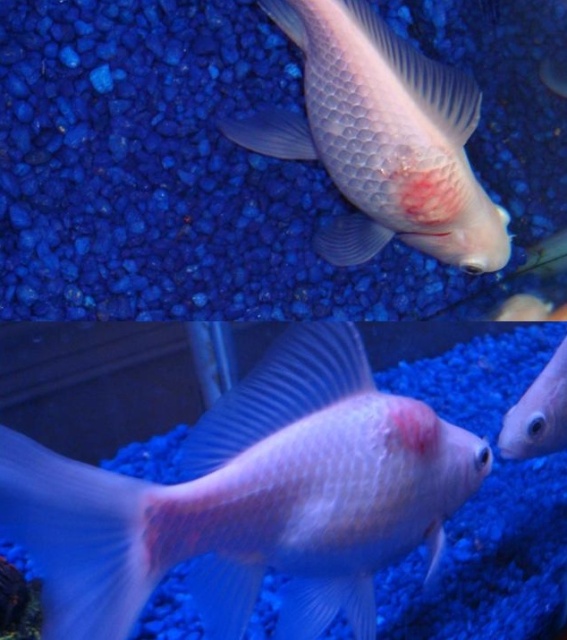 Goldfish with swollen bump near dorsan fin
Question
Goldfish with swollen
Jumbo (see attached pho
Goldfish with swollen bump near dorsan fin
Question
Goldfish with swollen
Jumbo (see attached pho
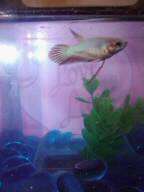 Female betta laying eggs?
Question
Betta fish
I recently purchased a female bett
Female betta laying eggs?
Question
Betta fish
I recently purchased a female bett
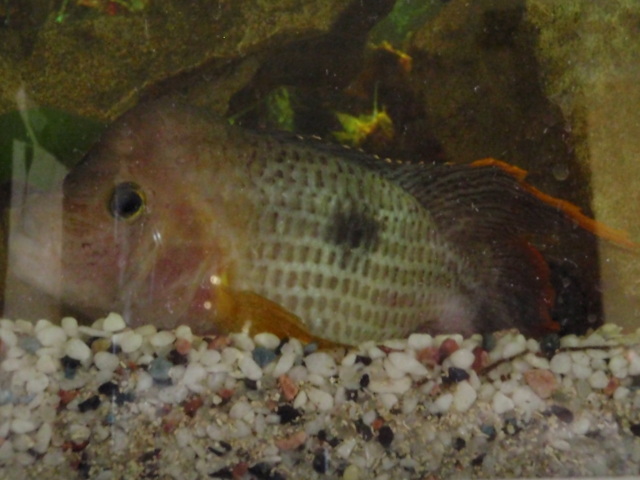 Sinking Green Terror
QuestionGreen Terror Sitting
QUESTION: Hi Ron,
Sinking Green Terror
QuestionGreen Terror Sitting
QUESTION: Hi Ron,
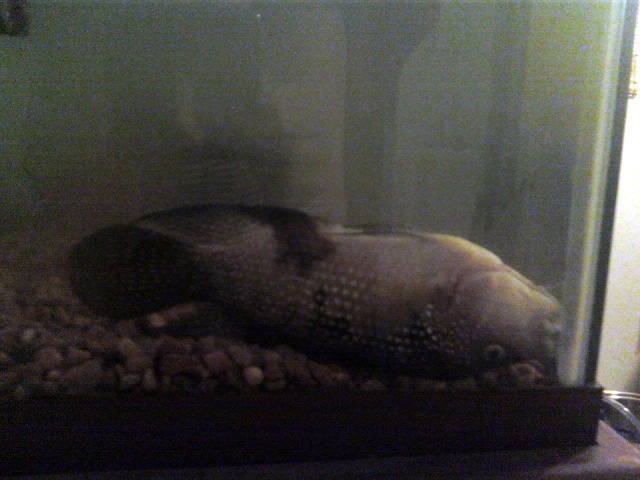 Upside-down Dempsey
Question
Sick Demsey
I have 2 Jack Dempsey Cichlids tha
Upside-down Dempsey
Question
Sick Demsey
I have 2 Jack Dempsey Cichlids tha